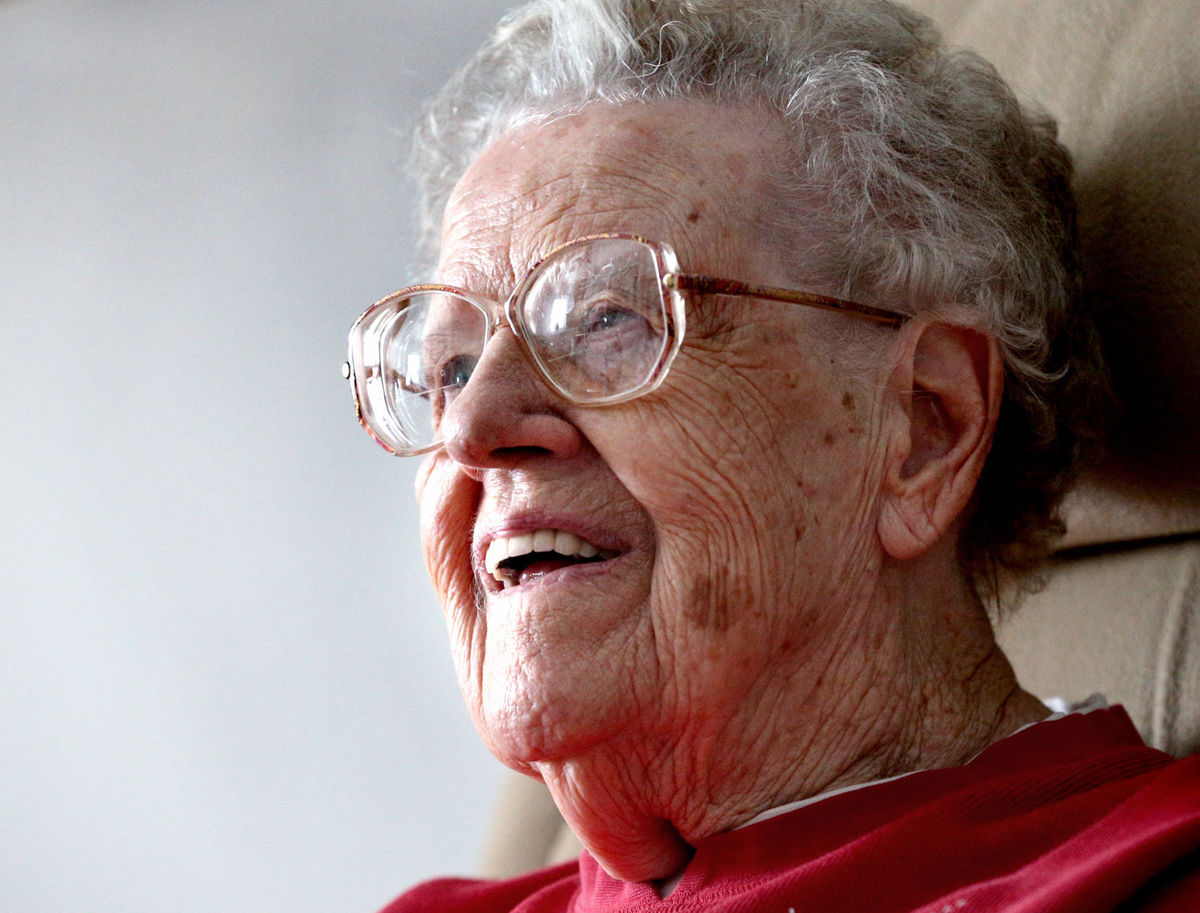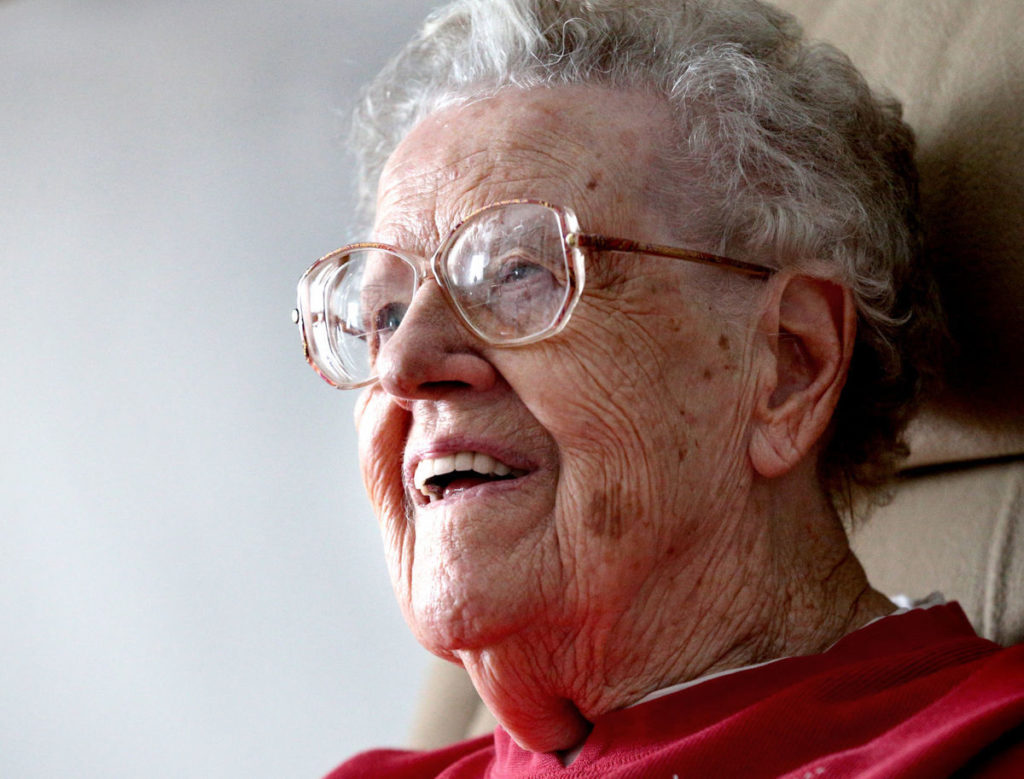
By Chris Hubbuch
La Crosse Tribune

LA CROSSE, Wis. (AP) – June Kjome doesn’t want to be a bossy old lady.
Despite her 96 years of experience, Kjome thinks people need less advice and more role models, the La Crosse Tribune reported.
“It’s a great temptation when you’re older to tell everyone how to do it,” she said. “I don’t think people need advice as much as they need examples.”
To her friends, the missionary, nurse and social justice activist is the embodiment of living – and aging – with grace, and they have put her thoughts into a new book, “June Kjome: Reflections on Aging.”
“She’s a role model to me,” said author Susan T. Hessel. “We talk about people having a courageous fight about cancer, but we don’t talk about them having a courageous fight about aging. She is the Eveready bunny. She keeps on going.”
Born in Decorah, Iowa, and raised in Austin, Minn., Kjome said she was enthralled by missionaries who spoke at her church about their experiences abroad. When she graduated from nursing school at the University of Minnesota Kjome volunteered.
When the mission board called and asked if she would go to Zululand, Kjome recalls her response: “Yes. Where is it?”
In 1945, Kjome sailed aboard a cargo ship to the South African province, where she spent the next 17 years treating patients in back country clinics. She said she was appalled by the institutionalized racism but didn’t dare to speak out for fear her visa would be revoked and the mission shut down.
After returning to the United States, Kjome got a job at Lutheran Hospital in La Crosse and began speaking to church groups about her work – and the injustice of apartheid.
Kjome eventually became head of nursing education at what is now Gundersen Health Systems but retired in 1985 to devote herself to social justice.
She served on the board of the YWCA, which led her to eventually found a local chapter of Habitat for Humanity. In the late 1980s she became an advocate for gay and lesbian rights. She fought hunger, racism, domestic violence. In 2002, she co-founded the anti-war group known as “Women in Black” and as recently as June was still attending their weekly vigils for peace.
“It was just one thing after another,” Kjome said.
The idea for the book originated in a bathroom stall.
In 2010, Susan Schmidt was attending an an annual gala hosted by the LGBT Resource Center for the Seven Rivers Region where June was the featured speaker. In the Radisson banquet hall bathroom, Schmidt overheard someone say they needed to find someone to read to June, whose eyesight was failing.
Schmidt didn’t know Kjome, but she immediately volunteered.
“I was a teacher for years,” she said. “And it’s one of my favorite things to do.”
Once a week, Schmidt visits Kjome at her South Side apartment, where she reads her the newspaper and helps her pay her bills. Schmidt later recruited her friend Kate Mayer to fill in for her. Mayer now visits once a week to read books.
The friends started talking about how much they learned from Kjome, and Mayer suggested they find a way to share it with others.
“It all started with both of us appreciating – she has so much insight,” Mayer said.
Mayer and Schmidt recruited Hessel to write the book, which is organized into chapters on Kjome’s values and the lessons she’s learned over the years.
Hessel said she and her friends, all in their 60s, aspire to be like Kjome.
“All of us want to be like her when we grow up,” Hessel said.
Kjome said three things make life worth living: faith, family and friends. She also learned there’s no sense complaining or worrying.
“Get off your duff and do something,” she said. “There are many things you can do.”
Growing old isn’t easy, but Kjome jokes that “the alternative isn’t all that much fun.”
She’s outlived her parents, siblings and most of her peers. There are fewer people who can share old memories, though she’s grateful for the many new friends who’ve taken their place.
A combination of glaucoma and macular degeneration have taken most of her sight. Ten years ago she sold her car so she wouldn’t be tempted to drive. Now she relies on a network of friends to ferry her to church and the store and regular meetings of the half dozen or so groups she’s still involved with
“You have to get over that,” she said of asking for help. “Otherwise you’ll never get anywhere.”
Kjome said she has no regrets, though she’s frustrated that age has limited her ability to serve.
“I’m just glad I had an opportunity all those years to be active,” she said.



